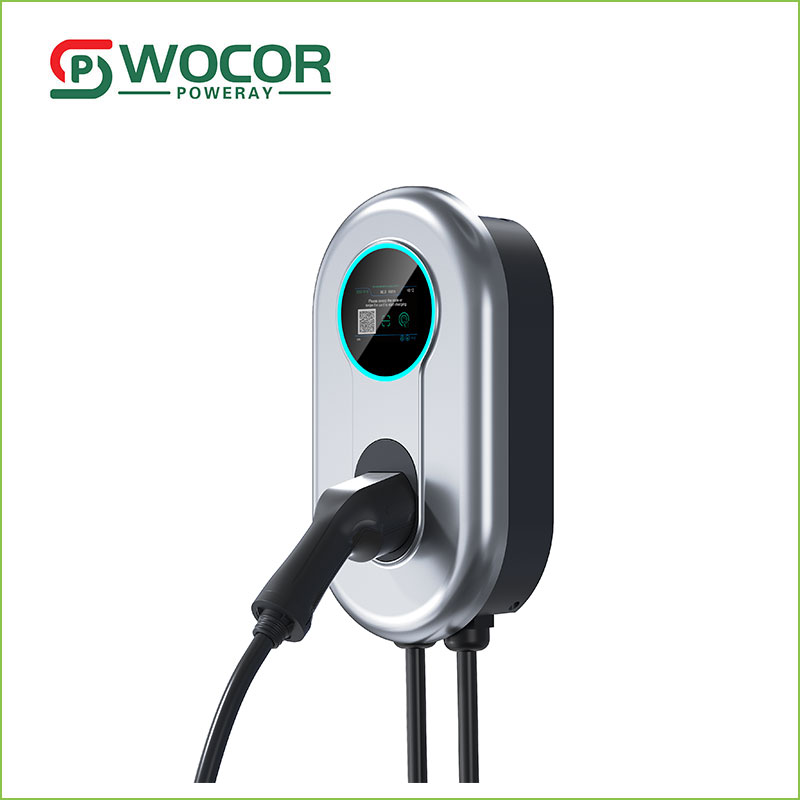EV Charger Station: Powering the Future of Electric Mobility
2025-07-03
An EV charger stationis a crucial infrastructure component that enables electric vehicles (EVs) to recharge their batteries efficiently and conveniently. As the adoption of EVs accelerates globally, EV charger stations are becoming essential for supporting sustainable transportation and reducing carbon emissions.
What Is an EV Charger Station?
An EV charger station, also known as an electric vehicle charging station or EVSE (Electric Vehicle Supply Equipment), provides electrical energy to recharge EV batteries. These stations vary in charging speed and power output, ranging from slow Level 1 chargers to ultra-fast DC fast chargers, designed to meet diverse user needs and vehicle capabilities.

Types of EV Charger Stations
Level 1 Chargers:Use standard household outlets (120V) and provide slow charging, suitable for overnight home use.
Level 2 Chargers:Operate at 240V with faster charging rates, commonly installed at homes, workplaces, and public locations.
DC Fast Chargers:Provide rapid charging (typically 50kW and above) for quick top-ups at commercial and highway stations.
Wireless Chargers:Emerging technology allowing cable-free charging through inductive charging pads.
Key Features of EV Charger Stations
Charging Speed:Varies from a few miles of range per hour to 80% battery charge in under 30 minutes.
Connector Types:Compatible with various EV models using standards like SAE J1772, CCS, CHAdeMO, and Tesla connectors.
Smart Connectivity:Many stations feature apps, RFID access, payment systems, and energy management capabilities.
Safety:Built-in protections against overcurrent, overheating, and electrical faults.
Durability:Weatherproof and vandal-resistant designs for outdoor and public installations.
User Interface:LCD screens or LED indicators to display charging status and instructions.
Benefits of EV Charger Stations
Convenience:Provides accessible charging points to support daily EV use.
Environmental Impact:Encourages EV adoption, reducing greenhouse gas emissions.
Cost Savings:Lowers fuel costs compared to gasoline or diesel vehicles.
Grid Integration:Smart chargers can manage energy loads and integrate with renewable energy sources.
Economic Growth:Supports new business opportunities in the green energy sector.
Applications of EV Charger Stations
Residential:Home charging for private EV owners.
Commercial:Workplace and retail location chargers for employees and customers.
Public Infrastructure:Urban, highway, and parking lot chargers for general public use.
Fleet Management:Charging solutions for electric buses, taxis, and delivery vehicles.
Considerations When Choosing an EV Charger Station
Power Requirements:Match charger capacity with EV battery size and desired charging speed.
Installation Location:Assess electrical infrastructure, space, and accessibility.
Connector Compatibility:Ensure chargers support the EV models in use.
User Access:Decide on public, private, or mixed-access charging.
Smart Features:Consider app integration, billing options, and energy monitoring.
Conclusion
EV charger stations are a vital component of the electric vehicle ecosystem, enabling convenient and efficient charging for a cleaner, more sustainable transportation future. Whether for home use or public deployment, investing in reliable, user-friendly charging infrastructure is key to supporting the growing electric mobility movement.


